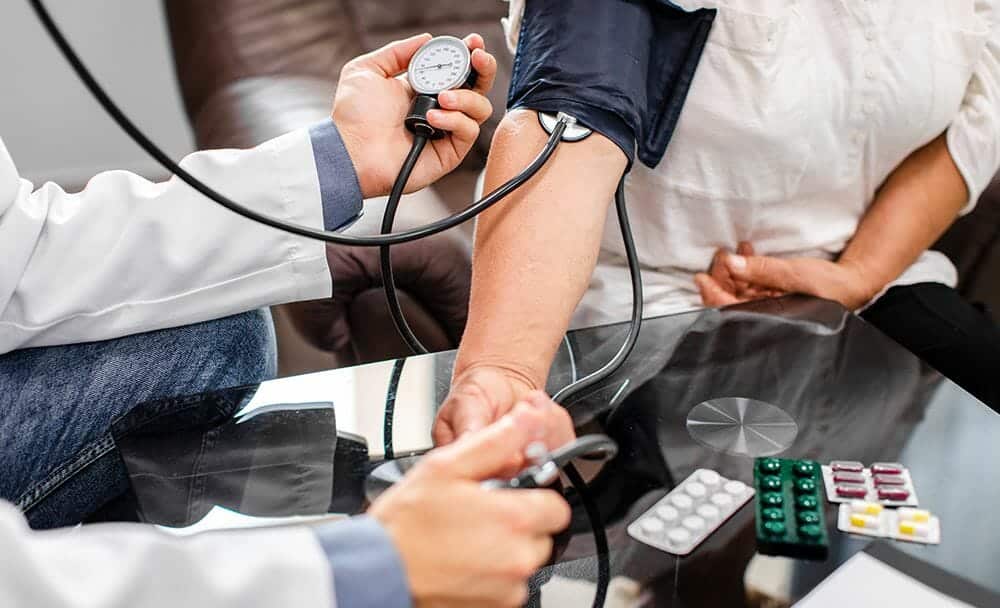
Potassium is an important electrolyte for the human body. Electrolytes are minerals that carry an electric charge when dissolved in bodily fluids. They are essential for the proper functioning of your body’s cells and nerves. When potassium levels plummet below the normal range, it gives rise to a condition known as hypokalemia.[1][2] This comprehensive article delves into the symptoms, causes, diagnosis, and treatment options for hypokalemia.
Symptoms of Hypokalemia

Hypokalemia, most commonly, does not exhibit any obvious signs and remains asymptomatic. However, this condition can manifest as sudden bouts of severe muscle weakness, eventually progressing to paralysis and potentially leading to respiratory failure. [3] [4] [5] Common symptoms include:
- Muscle Weakness
- Fatigue
- Muscle Cramps
- Irregular Heartbeat
- Constipation
- Numbness or Tingling
Causes of Hypokalemia
The Normal level of Potassium in humans is supposed to be between 3.5 mmol/L and 5 mmol/L. Hypokalemia occurs when Potassium levels drop below 3.5 mmol/L. When Potassium levels are between 3.5 to 2.5 mmol/L, Hypokalemia is considered to be moderate. Levels below 2.5 mmol/L are an indication of severe Hypokalemia. Several factors contribute to the development of hypokalemia.[1] Understanding the underlying causes is vital for accurate diagnosis and effective treatment. Here are some common causes:
Diuretic Medications
Certain diuretic medications, commonly referred to as water pills, are prescribed to increase urine production and manage conditions like high blood pressure or oedema. However, these medications can increase potassium excretion, leading to hypokalemia. [6]
Gastrointestinal Disorders
Conditions affecting the gastrointestinal tract, such as chronic diarrhoea, vomiting, or malabsorption disorders, can result in potassium loss and subsequent hypokalemia. [4]
Kidney Disorders
Kidneys play a significant role in regulating potassium levels. Any dysfunction or impairment in kidney function can disrupt potassium balance and lead to hypokalemia.[3]
Excessive Sweating
Intense physical activities or excessive sweating due to hot weather can cause potassium loss through sweat, potentially resulting in hypokalemia.[3]
Certain Medications
Some medications, including corticosteroids [7], laxatives, and specific antibiotics, can interfere with potassium absorption or increase its excretion, leading to low potassium levels. [8]
Diagnosing Hypokalemia

If hypokalemia is suspected based on the presented symptoms, healthcare professionals will conduct diagnostic tests to confirm the condition. These may include:
Blood Tests
A simple blood test can measure potassium levels in the bloodstream. The normal range for potassium levels is typically between 3.5 to 5.0 mmol/L. [2]
Electrocardiogram (ECG)
An ECG measures the heart’s electrical activity and aids in detecting irregularities or abnormalities caused by low potassium levels. [9]
Urine Tests
Analysing urine samples can provide insights into potassium excretion and help determine the cause of hypokalemia. [10]
Treating Hypokalemia
The treatment of hypokalemia revolves around replenishing potassium levels and addressing the underlying cause. The approach may vary depending on the condition’s severity and the experienced symptoms. Here are some treatment options:
Potassium Supplements
In mild cases of hypokalemia, healthcare providers may prescribe oral potassium supplements to restore potassium levels to normal. Adhering to the prescribed dosage is essential to prevent excessive potassium intake, which can have adverse effects. [4]
Intravenous Potassium
In more severe cases or when immediate correction of potassium levels is necessary, intravenous (IV) potassium supplementation may be administered under medical supervision. [4]
Treating Underlying Conditions
If hypokalemia stems from an underlying medical condition, such as kidney disease or gastrointestinal disorders, addressing the primary condition is crucial to prevent recurring episodes of low potassium.
Medication Adjustments
If certain medications induce hypokalemia, healthcare providers may adjust the dosage or switch to alternative medications to prevent further potassium depletion. [4]
Prevention and Outlook
Preventing hypokalemia entails maintaining a balanced diet that includes potassium-rich foods like bananas, oranges, and spinach. Adequate hydration and avoiding excessive sweating can also help prevent potassium depletion. Regular monitoring of potassium levels and compliance with prescribed medications is essential for individuals at risk of hypokalemia.
FAQs
What kind of foods does Ayurveda recommend to consume to increase potassium in the body?
Foods which are rich in potassium as per Ayurveda are spinach, parsley, potatoes, tomatoes, lettuce, peas, and beans; fruits like apples, bananas, oranges, and nuts are also rich in potassium content.
Can hypokalemia be a life-threatening condition?
Yes, hypokalemia can be a life-threatening condition, especially if left untreated. If you suspect you have hypokalemia, it is vital to seek immediate medical attention to prevent further complications.
Can hypokalemia recur?
Yes, hypokalemia can recur if the underlying causes are not addressed or if there are predisposing factors. To minimise the risk of recurrence, it is important to follow medical advice, monitor potassium levels regularly, and take preventive measures.
Can hypokalemia lead to serious complications?
Yes, if left untreated, hypokalemia can lead to serious complications. Severe cases of hypokalemia can cause muscle paralysis, respiratory failure, and even life-threatening cardiac arrhythmias. It is important to seek medical attention and follow the recommended treatment to prevent complications.
Can hypokalemia be managed without medication?
The management of hypokalemia depends on its severity and underlying cause. In some cases, lifestyle changes, such as dietary modifications to include potassium-rich foods, staying hydrated, and avoiding excessive sweating, may be sufficient to manage mild cases of hypokalemia. However, in more severe cases, medication and medical interventions may be necessary.
Conclusion
The outlook for hypokalemia is generally positive with appropriate treatment and management. Most individuals experience symptom improvement once potassium levels are restored to normal. However, identifying and addressing the underlying cause is crucial to prevent future episodes of hypokalemia. It is important to consult with a healthcare professional if you suspect you may have hypokalemia for a proper diagnosis and guidance regarding suitable treatment options to restore your potassium levels and ensure overall well-being.
Disclaimer: This Article is for informative purposes only and does not constitute medical advice. Kindly contact a medical professional before attempting any treatments mentioned in the article yourself.
References:
- Hypokalemia – StatPearls – NCBI Bookshelf (nih.gov)
- Hypokalemia (Low Level of Potassium in the Blood) – Hormonal and Metabolic Disorders – MSD Manual Consumer Version
- Hypokalemia – Symptoms, Causes, Treatment | NORD (rarediseases.org)
- Hypokalemia: a clinical update – PMC (nih.gov)
- Tingles, Tetany, and Electrolyte Derangements – PMC (nih.gov)
- Hypokalemia Associated With Diuretic Use and Cardiovascular Events in the Systolic Hypertension in the Elderly Program | Hypertension (ahajournals.org)
- Effect of Corticosteroids on Serum Potassium Levels in Patients with Obstructive Airway Disorders(ijhsr.org)
- Medication-Induced Hypokalemia – PMC (nih.gov)
- ECG Diagnosis: Hypokalemia – PMC (nih.gov)
- Urine Potassium Test – Test Results, Normal Range, Cost And More (lybrate.com)
















